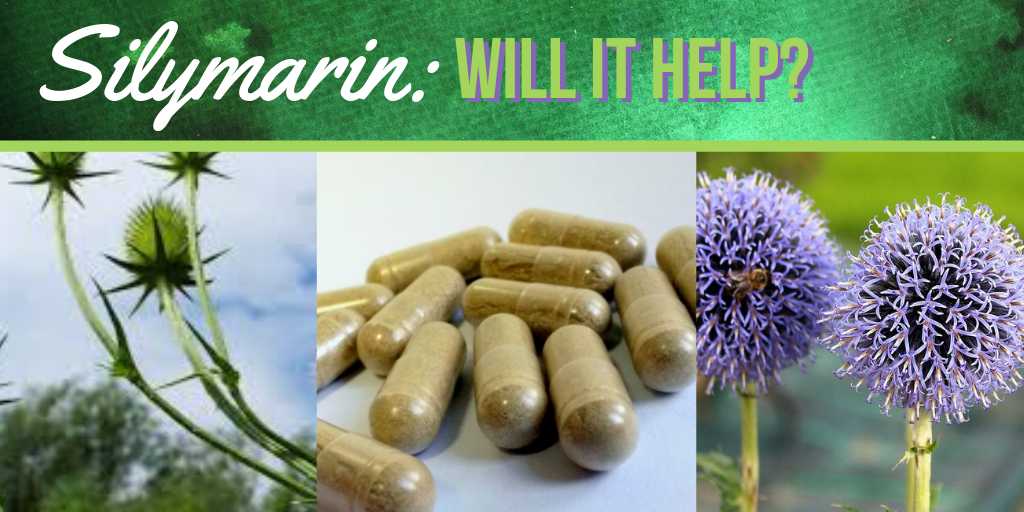
Silymarin, an herb and extract of milk thistle seeds, is a supplement commonly taken by hepatitis patients across the world, yet its proven benefits remain controversial. It is not a treatment for hepatitis B or D, nor has it been shown to have any effect against fighting the viruses. This herb is believed to have possible benefits on liver health due to its antioxidant and free radical fighting properties, although no studies have found a consistent positive effect on viral load or fibrosis scores 1 .
Silymarin is often taken by patients or suggested by their health care provider during or after interferon treatment ends, presumably with the hope of a protective or anti-inflammatory effect on the liver. But a 2013 study on hepatitis C patients unsuccessfully treated with interferon (the standard treatment for hepatitis B and D coinfection) found no significant difference in silymarin’s ability to lower ALT scores over placebo, a pill with no active drug ingredients 2 . Another 2013 metanalysis reviewed 8 studies which tested silymarin against a placebo and looked for measurable levels of improvement in ALT scores, of which the results were mixed and inconsistent1.
Interestingly, several studies have found improvements in patients’ self-reported patient quality of life after taking silymarin 1 – perhaps due to decreased stress or self-perceived control over their health. However, a 2012 study which randomly assigned patients either silymarin or placebo to measure possible declines in ALT or virus levels, in addition to self-reported quality of life, found little to no improvement in any of these outcomes3 regardless of whether they took milk thistle or a placebo.
As mentioned in our previous blog post, the U.S. National Institutes for Health (NIH) has published a directory of what scientific research has discovered about common herbal supplements. Probably the most popular herbal supplement pitched as a liver remedy is milk thistle, and its extract silymarin. The NIH milk thistle report found, “Previous laboratory studies suggested that milk thistle may benefit the liver by protecting and promoting the growth of liver cells, fighting oxidation (a chemical process that can damage cells), and inhibiting inflammation. However, results from small clinical trials of milk thistle for liver diseases have been mixed, and two rigorously designed studies found no benefit.”
The verdict on silymarin? Due to mixed literature and lack of proven improvements, patients should not rely on silymarin as a treatment for hepatitis B or D, and should discuss any new prescription recommendations with their doctor. Silymarin will not counterbalance damage done by hepatitis B or D viruses. While some studies have found silymarin to be well tolerated with low side-effects6, individual reactions can vary. In the U.S., supplements including silymarin are not regulated by the Food and Drug Administration (FDA), making the true contents of supplements unknown. For these reasons, patients should be cautious about supplements and consider additional ways to improve their overall health. Lifestyle changes including eating a nutritious, balanced diet, avoiding alcohol and cigarettes, and getting regular exercise have been repeatedly proven to have the ability to lower ALT and AST numbers4,5. It is understandable why many patients may turn to herbal supplements for possible health benefits, but without more consistent regulation, and proven clinical benefit, investing in overall healthy lifestyle changes may prove most beneficial.
It is very important for hepatitis B and D patients to be managed by a doctor, preferably a liver specialist, who is familiar with managing coinfected patients. For assistance in locating a specialist near you, please visit our Physician Directory page. For additional questions, please visit www.hepdconnect.org or email connect@hepdconnect.org.
Disclaimer: Herbal products are not U.S.FDA approved, and the Hepatitis B Foundation cannot endorse the usage of such products that lack regulation and scientific evidence to deem them both effective and safe.
References
1. Polyak, S. J., Ferenci, P., & Pawlotsky, J. M. (2013). Hepatoprotective and antiviral functions of silymarin components in hepatitis C virus infection. Hepatology (Baltimore, Md.), 57(3), 1262-71.
2. Fried, M. W., Navarro, V. J., Afdhal, N., Belle, S. H., Wahed, A. S., Hawke, R. L., Doo, E., Meyers, C. M., Reddy, K. R., Silymarin in NASH and C Hepatitis (SyNCH) Study Group (2012). Effect of silymarin (milk thistle) on liver disease in patients with chronic hepatitis C unsuccessfully treated with interferon therapy: a randomized controlled trial. JAMA, 308(3), 274-82.
3. Fried MW, Navarro VJ, Afdhal N, et al. Effect of Silymarin (Milk Thistle) on Liver Disease in Patients with Chronic Hepatitis C Unsuccessfully Treated with Interferon Therapy: A Randomized Controlled Trial. JAMA.2012;308(3):274–282. doi:10.1001/jama.2012.8265
4. Rusu, E., Jinga, M., Enache, G., Rusu, F., Dragomir, A. D., Ancuta, I., Draguţ, R., Parpala, C., Nan, R., Sima, I., Ateia, S., Stoica, V., Cheţa, D. M., Radulian, G. (2013). Effects of lifestyle changes including specific dietary intervention and physical activity in the management of patients with chronic hepatitis C–a randomized trial. Nutrition journal, 12, 119.
5. St George A, Bauman A, Johnston A, Farrell G, Chey T, George J Gastroenterol Hepatol. 2009 Mar; 24(3):399-407.
6. Rambaldi, Andrea & P Jacobs, Bradly & Gluud, Christian. (2007). Milk thistle for alcoholic and/or hepatitis B or C virus liver diseases. Cochrane database of systematic reviews (Online).

